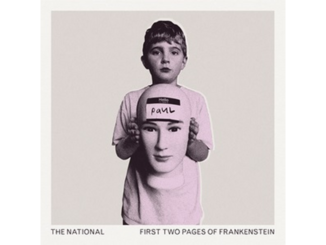
‘This Sovereign Isle’, or ‘Britain in and out of Europe’ by Robert Tombs was published by Allen Lane on 28th January 2021. I got my copy from Blackwells at a slight discount to the £16.99 RRP and with free postage.
Brexit is passing from current politics into history, despite the hiccups over the Northern Ireland protocol and the EU’s banning of shellfish and ham sandwiches. This book is a look back at Britain’s relationship with Europe, from times before the EU was a twinkle in anyone’s eye, to today including the effects of the coronavirus.
Professor Tombs voted Leave in 2016, partly because he felt there might never come such a time again, and partly because a colleague advised him that there would be no economic disaster upon leaving. He is not a dyed-in-the-wool Leaver-at-any price, and he uses this book to examine events around the 2016 Referendum. He says he is not neutral but rational and (he hopes) fair.
The first chapter, ‘Set in a Silver Sea’ gallops through history from the Romans to the Cold War, by way of Boadicea, Hastings, a whole series of wars with France, the Industrial Revolution, trade with and migration to the Americas, the Antipodes and South Africa, and Britain’s entry into World War One in response to the invasion of Belgium. His conclusion is that, unlike the continental countries, Britain has not, since the 16th century, wanted a permanent link with Europe. Alone among European nations our links to the English-speaking countries are the foundation of Western security.
Well, what happened to change that in the post-war years? Labour had just nationalised the coal and steel industries and didn’t want to give up control to the European Coal and Steel Community, so we didn’t join it. France wanted to control Germany (then and now); America wanted to be able to pick up the phone to Europe; and Germany wanted to rehabilitate itself. That famous ‘Yes, Minister’ sketch had more than a grain of truth. Then we lost our nerve. The Suez Crisis of 1956 started the rot, and the worry was that we were declining and would become only a ‘greater Sweden’, in the second division of nations. Britain’s Empire was melting away, largely amicably, and our leaders thought that membership of the EEC would give us a place and a role. The EEC didn’t see it like that, with de Gaulle wanting us naked and the sudden emergence of the Common Fisheries Policy the day entry negotiations started leading us to ‘swallow the lot and swallow it whole’. So that was it. On 1st January 1973, we went in.
The next forty-three years were anything but a smooth ride. The Arab-Israeli War of October 1973 brought an oil price shock that stressed European economies and ended the post-war growth. The Common Agricultural Policy kept food prices high and then we got Value Added Tax.. Remember stagflation? Amid all this, Harold Wilson went to renegotiate terms with the EEC. He got little of substance but put it to the country in the 1975 Referendum with the support of all the acceptable faces of British public life. Sounds a bit like 2016…
I remember the canvasser calling to ask for my parents’ votes. (I was too young to vote.) It was very jocular, ‘fog in channel, continent isolated, ha ha’ was how the conversation went. The Yes side won, of course, and the long march towards Economic and Monetary Union continued on several fronts. There was the cultural offensive, promotional films, youth visits, etc. And there was the clever lobbying of interest groups, exemplified by Jacques Delors’ speech to the TUC conference in 1988. He persuaded most of the Unions that, even if they couldn’t gain workers’ rights through the UK ballot-box, the EEC would guarantee them at the European level.
Then down came the Berlin wall in 1989 and the pressure was on to reunify Germany. As their price, France wanted European Monetary Union (the ERM, the ECB, and the Euro) so Germany could prove its good intentions. Margaret Thatcher was against but got savaged by Geoffrey Howes’ dead sheep and was replaced by John Major. There followed a couple of demonstrations of why the EEC didn’t work: the peacekeeping operation in Yugoslavia which had to be rescued by the Americas, and the fiasco of the Exchange Rate Mechanism culminating in Black Wednesday when Britain left the ERM. Despite this, plans for the Euro went ahead for launch in 1999. Luckily, Britain didn’t join – Ed Balls called it ‘the most successful economic decision of the last thirty years’.
You will be familiar with more recent events – the expansion Eastwards of the EU, the EU Constitution that morphed into the Lisbon treaty after being rejected by referendums in Holland and France, the wave of migration from accession countries, and the rise of UKIP who won the 2014 EU election, the first time in many years when a national election had not been won by one of the two big parties. We were at long last having second thoughts about the club we’d joined in 1973. In 2015 David Cameron promised a referendum on EU membership and (much to his own surprise) won an overall majority at the election so had no excuse to back down. And in 2016, after a renegotiation that just as in 1975 yielded nothing, 17,410,742 people voted to Leave.
That’s when the fun began.
Robert Tombs goes on to analyse who voted Leave or Remain, and comes up with these groups:
On the Leave side were what he calls the Magna Carta group, who believed that when fundamental choices have to be made, the people decide and the rulers obey. 8.5 million Leave voters said that their main reason for voting Leave was that decisions about the UK should be taken in the UK.
But what about the Remainers?
There were Ideological Remainers, about 1.4 million, committed to the European Project.
There were Professional Remainers, whose jobs and career interests commit them to the EU. Small in number but influential.
There were Worried Remainers, perhaps motivated by Project Fear. Not confident of success in the EU, but scared leaving would be worse.
And Status Quo Remainers, not enthused by the EU, but thinking that a semi-detached UK gave them the best of both worlds.
Remainers were risk-averse; Leavers were more confident in the country’s capacity to succeed; poorer voters had less to lose; older voters could remember pre-1973 wasn’t exactly scary.
Tombs suggests that Leavers and Remainers were very similar in their views on most subjects but Remainers gave more weight to economic issues and individual rights, while Leavers prioritised family, community, and national cohesion.
The post-referendum problem is now all too familiar – the country had voted Leave unambiguously in the largest vote ever held in the UK, but a majority of MPs were Remainers.
Remainers explained away their loss as perverse and there were ghoulish comments about holding another vote ‘now that we know more’ or even ‘now that more old Leavers have died’. Leavers were ignorant, poor, bigoted, and gullible dupes of the press, led astray by the Russians, that bus, and Silver-Tongued Demagogues. I’ve never thought of Michael Gove as a STD, but there you go…
Tombs goes on to describe the efforts to stop Brexit. New terms were invented – Soft and Hard Brexit. The Remain organisation stayed in being, rebadged as Open Britain, and carried on campaigning. There were calls for a People’s Vote and that Gina Miller launched legal challenges. Theresa May held a general election and held on by the skin of her teeth, prolonging the agony. The Supreme Court joined in the fun as did the Speaker of the House of Commons. The drama concluded with the Withdrawal Agreement being rejected multiple times by the House of Commons. After the farce of the 2019 European Elections, where the Conservatives came fourth, Theresa May resigned and Boris picked up the ball from the back of the scrum. He called a general election, campaigned on the three-word slogan, ‘Get Brexit Done’ and won an 80-seat majority. The UK left the EU on 31st January 2020 and the transition period ended on 31st December 2020.
And then along came the coronavirus…
Robert Tombs concludes with his view of where we go from here, despite acknowledging that ‘predictions are hard, especially about the future’. Brexit makes Scottish independence unfeasible and Irish unity unattractive. As to the EU? Brexit could spur a smaller EU, able to move towards greater centralisation without the UK dragging its feet. Or Brexit could be the first crack in the dam. We have much to be proud of – trying to persuade the EU from rushing into the booby-trapped Euro. Paying into NATO while supporting EU diplomatic efforts. Following all the rules (unlike some). Paying our tab for 43 years.
The EU, Robert says, has become a political black hole, sucking authority away from elected governments but unable to wield that authority effectively. Just look at the vaccines fiasco.
He concludes by asking two questions:
Where would you choose to face a pandemic? Singapore or China?
Where would you put your life savings? Switzerland or the EU?
Geography comes before history. But place has become less important. Language and culture have become more so. How we do as an outward-looking nation depends on us. We’ll either be an example for others to follow or one for them to avoid.
Conclusion
This is a history book, replete with footnotes, not a raconteur’s account of the referendum campaign. It may take more attention in reading as a result. But I think it’s as good a first draft of history as we’re likely to get.
Amazon link for Ad blockers: https://amzn.to/37B7p2D
© Jim Walshe 2021
The Goodnight Vienna Audio file



